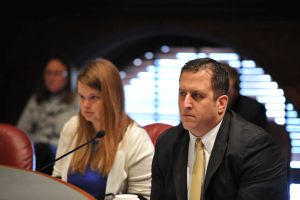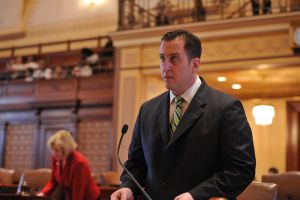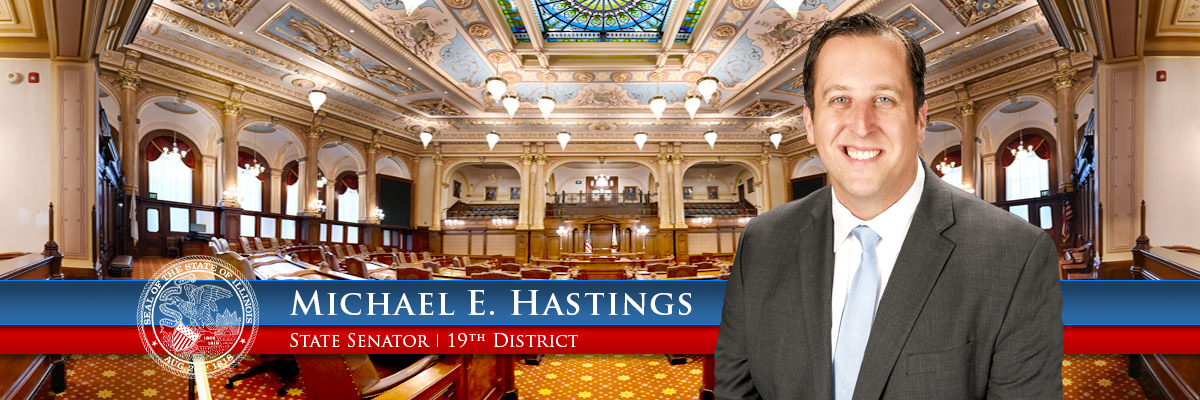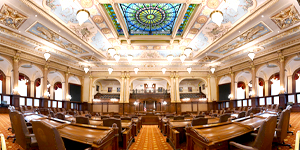- Details
- Category: Press Releases
 TINLEY PARK – Following the governor's budget address, Senator Michael Hastings (D-Tinley Park) offered his opinion on the budget plan.
TINLEY PARK – Following the governor's budget address, Senator Michael Hastings (D-Tinley Park) offered his opinion on the budget plan.
"I give the governor credit for trying to tackle the budget woes of Illinois in the first few months in office," Hastings said. "I would like to support the governor on some of his initiatives regarding early childhood education and fixing the dangerous conditions for our state correctional officers."
- Details
- Category: Press Releases

SPRINGFIELD –State Senator Michael E. Hastings (D-Tinley Park) expressed a willingness to work with the Governor to correct the shortcomings the State has developed over recent years. Hastings noted that in the Governor's address there were some proposals that held merit while others fell short.
Hastings approved of the governor's plan to reinvest in the criminal justice system and Adult Redeploy Program, which helps reduce the recidivism rate in Illinois.
"I've been inside our prisons. I know that they need additional correctional officers to maintain their safety," Hastings said. "Also, programs like Adult Redeploy should be invested in to help steer offenders away from re-entering prison."
- Details
- Category: Press Releases
 SPRINGFIELD – Legislation focused on providing financial relief to critically wounded veterans and their families received the governor’s signature today. The measure increases the property tax exemption for veterans with severe service related-disabilities in order to make their homes more affordable on their fixed income. The proposal also expands the exemption to include homes donated to veterans by charitable organizations.
SPRINGFIELD – Legislation focused on providing financial relief to critically wounded veterans and their families received the governor’s signature today. The measure increases the property tax exemption for veterans with severe service related-disabilities in order to make their homes more affordable on their fixed income. The proposal also expands the exemption to include homes donated to veterans by charitable organizations.
“These veterans have already risked their life for our freedom, they shouldn’t be faced with more financial battles when they return home,” said State Senator Michael E. Hastings (D–Tinley Park), the Senate sponsor of the proposal.
The measure ensures that veterans with severe service-related disabilities who receive specially adapted homes from charitable organizations can access a property tax exemption. That exception is already available to disabled veterans who receive homes built with federal dollars.
- Details
- Category: Press Releases
 SPRINGFIELD – A tragic local death first led Illinois Senator Michael Hastings, a Tinley Park Democrat, to begin researching cyberbullying and ways to fight it.
SPRINGFIELD – A tragic local death first led Illinois Senator Michael Hastings, a Tinley Park Democrat, to begin researching cyberbullying and ways to fight it.
In doing that research, Hastings learned of a heinous form of internet intimidation known as “revenge porn” that slipped through antiquated loopholes in state law.
More Articles …
Page 75 of 87


